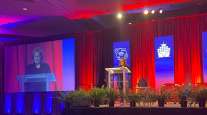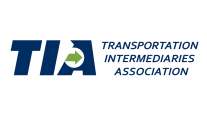Two Possible Reasons for Louisiana Governor's Unusual Stance in Looming Transport Debate

Gov. John Bel Edwards plans to piggyback on the bills of key state lawmakers to tackle Louisiana's road and bridge problems in an increasingly toxic political environment.
Edwards has called for transportation improvements for years, including the first forum of the 2015 race for governor. The governor's own task force studied the issue for five months, and recommended spending another $700 million per year to upgrade roads, bridges and ports.
But rather than spelling out a detailed proposal, and having a bill that mirrors those priorities, Edwards plans to get behind a bill or bills that he thinks are needed, including a hike in the state gas tax.
RELATED: Louisiana's transportation needs obvious, but solutions remain hard to find
Why go that route on such a high-profile issue?
Politicians and political experts said the governor's approach stems from two concerns.
One is the fact that budget problems, which dominated his first year in office, will be the top issue again when lawmakers convene on April 10.
The other reason, they said, is the view that Edwards does not want too many tax hikes attached solely to his name, even if there is widespread agreement that Louisiana needs to find ways to spend more on roads and bridges.
"Gov. Edwards is in a difficult position," said Joshua Stockley, an associate professor of political science at the University of Louisiana at Monroe.
"First and foremost, a governor can only prioritize so many issues at one time," Stockley said.
"And these days, given the Republican majorities in the state Legislature combined with fiscal uncertainties and shortages, he has got to be very careful about his policy agenda," he said.
RELATED: Louisiana transportation secretary aims big to fix huge funding shortfall
While Edwards and others have said a $700 million increase for transportation is unlikely, even smaller proposals are sure to spark heated debate.
Rep. Steve Carter, R-Baton Rouge, said last week he and others are crafting legislation that would boost the gas tax by up to 17 cents per gallon, which would raise about $500 million per year.
Getting behind a bill sponsored by a state lawmaker, especially a Republican, would lessen chances that Democrat Edwards would be accused of pushing another tax-and-spend plan, officials said.
Some Republicans say privately that Edwards and Wilson are clearly shaping the bill they want, and one preferably carried by a GOP lawmaker.
But it is unclear whether any Carter bill would be the Edwards-backed vehicle, and other lawmakers are crafting their own proposals that could win the second-year governor's support.
Still other legislators favor submitting any gas tax increase to voters, which Edwards has expressed interest in.
Shawn Wilson, secretary for the state Department of Transportation and Development and the governor's transportation lieutenant, said last week any major transportation proposal "needs to be bigger than the the governor's bill."
"It cannot just be a politically driven cause," he said.
Richard Carbo, the governor's spokesman, said Edwards backs the efforts of transportation coalitions, including the task force, and wants those groups to help build support in the Legislature for road and bridge improvements.
"We don't see it as not having a plan for transportation," Carbo said of the governor's stance.
The state has a $13 billion backlog of rank-and-file needs and a $16 billion backlog of "mega" projects.
Motorists in Louisiana pay 38.4 cents per gallon in gas taxes, including 20 cents in state charges. Any tax increases require the approval of two-thirds of the state House and Senate, huge hurdles in the best of times.
Last year, Edwards clashed repeatedly with GOP House leaders over revenue-raising measures, and there is already criticism of any possible tax boosts.
John Kay, state director of Americans for Prosperity-Louisiana, a conservative-leaning advocacy group, said there is a reason the governor is not spelling out his own transportation legislation.
"I think that despite his desire for a gas tax increase, Governor Edwards is starting to see the political reality that Louisiana taxpayers have grown weary of tax increases," Kay said in an email response to a question.
"He signed more than $1 billion in taxes into law in his first year as governor and is asking for more this year," he said.
Others said Edwards' strategy stems from questions about the mood of voters, including conflicting demands from some for sweeping improvements without higher taxes.
"I think right now he is trying to gauge public opinion," Lambert said.
The lawmaker said, in his own senatorial district, some favor action while others question how state money for roads and bridges is spent, a recurring theme among gas tax hike critics.
Stockley noted that the governor already has made the budget, a tax overhaul and prison changes priorities — all three sure to spark arguments.
"To throw in a fourth, fifth or six significant policy is to spread his office thin," he said.
Pearson Cross, an associate professor of political science at the University of Louisiana at Lafayette, said any push to overhaul Louisiana's corporate and other taxes "is going to bring out all the big guns" who favor the status quo.
"I think the governor feels like the upcoming session is going to be contentious enough," Cross said.
Edwards, who outlined his position in a private meeting last week with the Capital Region Legislative Delegation, left some groups puzzled.
Stephen Waguespack, president of the powerful Louisiana Association of Business and Industry, noted that the governor encouraged his task force to be bold and comprehensive.
"I would be surprised if he then, when the report comes out, runs from its recommendations," said Waguespack, who was chief of staff for former Gov. Bobby Jindal.
House Transportation Committee Chairman Kenny Havard, (R-St. Francisville), said state budget problems are the driving force behind any debate on roads and bridges.
"I would say the governor knows transportation is in dire need of funding and revenue," Havard said. "But I just think he understands the budget is more critical right now."




